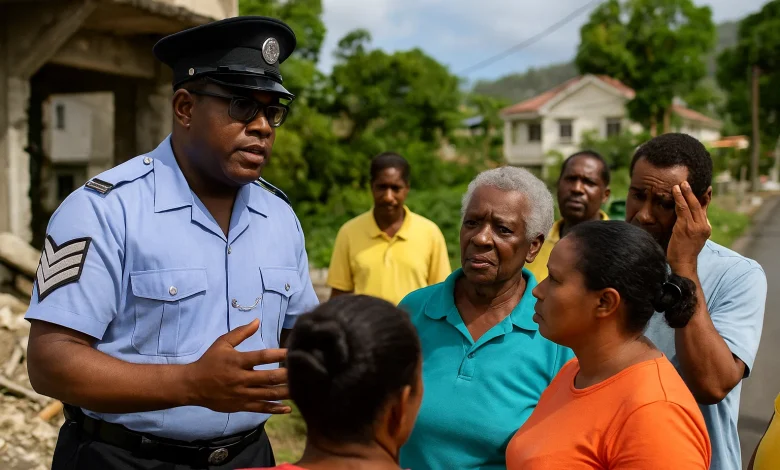Public Safety in Dominica

The concept of public safety in Dominica encompasses the collective efforts of government institutions, law enforcement agencies, legislation, and community programs. These efforts aim to protect citizens, maintain order, and reduce risks associated with crime, natural disasters, and public health threats. As a small island developing state in the Eastern Caribbean, Dominica’s approach to public safety combines traditional policing with disaster preparedness and modern regulatory frameworks.
Historical development of public safety institutions
Public safety in Dominica has its roots in the colonial period, when the Royal Dominica Police Force (later renamed the Commonwealth of Dominica Police Force) was tasked with law enforcement and order maintenance. Following independence in 1978, new institutions were created or restructured to expand the scope of safety beyond policing. The establishment of the Fire and Ambulance Service, the Office of Disaster Management (ODM), and later the Financial Intelligence Unit (FIU) reflected a broader understanding of safety that encompassed crime prevention, emergency response, and security from transnational threats.
Core agencies responsible for public safety
Public safety in Dominica is managed by a network of agencies, each with specific mandates:
- Commonwealth of Dominica Police Force (CDPF) – The main law enforcement agency responsible for crime prevention, investigation, and community policing.
- Fire and Ambulance Service – Provides fire response, medical emergencies, and search-and-rescue services.
- Office of Disaster Management (ODM) – Coordinates disaster preparedness and response, particularly for hurricanes, flooding, and volcanic activity.
- Customs and Excise Division – Prevents smuggling, enforces customs laws, and intercepts illegal goods at ports of entry.
- Financial Intelligence Unit (FIU) – Focuses on detecting and investigating money laundering and related financial crimes.
- Prison Service – Ensures secure custody, rehabilitation, and reintegration of offenders.
These agencies operate under the oversight of the Ministry of National Security, which integrates policing, disaster management, and regulatory compliance into one overarching framework.
Legislative framework supporting public safety
Public safety in Dominica is supported by a framework of laws that define crimes, penalties, and institutional responsibilities. Key statutes include:
- Criminal Law and Procedure Act – Establishes general criminal offenses and penalties.
- Drug Prevention and Misuse Act, Chapter 40:07 – Criminalizes possession, production, and trafficking of narcotics.
- Proceeds of Crime Act – Allows for confiscation of assets linked to criminal activity.
- Money Laundering Prevention Act – Provides mechanisms for monitoring and punishing financial crimes.
- Electronic Evidence Act (2010) – Ensures electronic records are admissible in court proceedings.
- Extradition Act and Mutual Assistance in Criminal Matters Act – Enable cross-border cooperation in tackling transnational crime.
- Fire and Ambulance Service Act – Defines responsibilities in emergency response.
- Emergency Powers legislation – Grants the government authority to act swiftly during national crises.
This framework ensures that public safety is not limited to physical policing but includes financial security, emergency response, and cross-border cooperation.
Key challenges and risks to public safety
Public safety in Dominica is influenced by both local and global pressures:
- Drug trafficking and organized crime – Dominica’s location in the Eastern Caribbean makes it a transit point for cocaine trafficking, posing risks of violence and corruption.
- Natural disasters – Hurricanes, tropical storms, flooding, and volcanic threats place continuous pressure on emergency preparedness and public safety agencies. Hurricane Maria in 2017 highlighted vulnerabilities, with widespread destruction and disruptions to security.
- Resource limitations – Small-island constraints, such as limited personnel, equipment, and funding, affect the capacity of law enforcement and disaster response agencies.
- Cybersecurity threats – While cybercrime legislation remains limited, increasing digitalization has exposed citizens and institutions to risks from fraud, identity theft, and online scams.
- Public health emergencies – Events such as the COVID-19 pandemic demonstrated how health crises can overlap with national security, requiring coordination between police, health authorities, and disaster management services.
Outlook for strengthening public safety in Dominica
Future priorities for public safety in Dominica include improving inter-agency coordination, enhancing training for law enforcement and emergency personnel, and modernizing laws to address emerging threats such as cybercrime. Strengthening border security through the Customs and Excise Division, investing in disaster-resilient infrastructure, and expanding community policing initiatives are also central to sustaining a safe environment. International partnerships through CARICOM IMPACS, the Regional Security System (RSS), and agreements with the United States and Europe continue to provide vital support in resources and intelligence-sharing.
Dominica’s small size presents challenges, but it also allows for closer community engagement between citizens and safety institutions. Public safety remains a national priority, linking law enforcement, disaster resilience, and financial oversight into a unified strategy.




